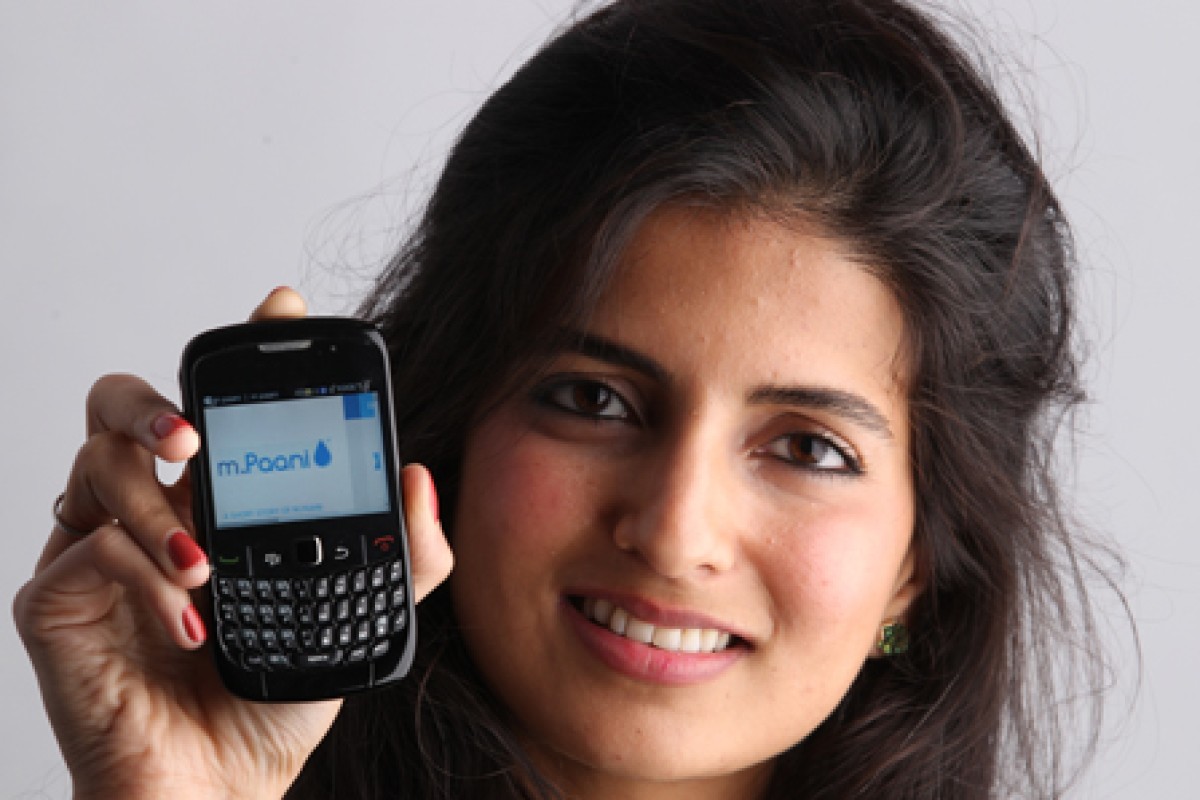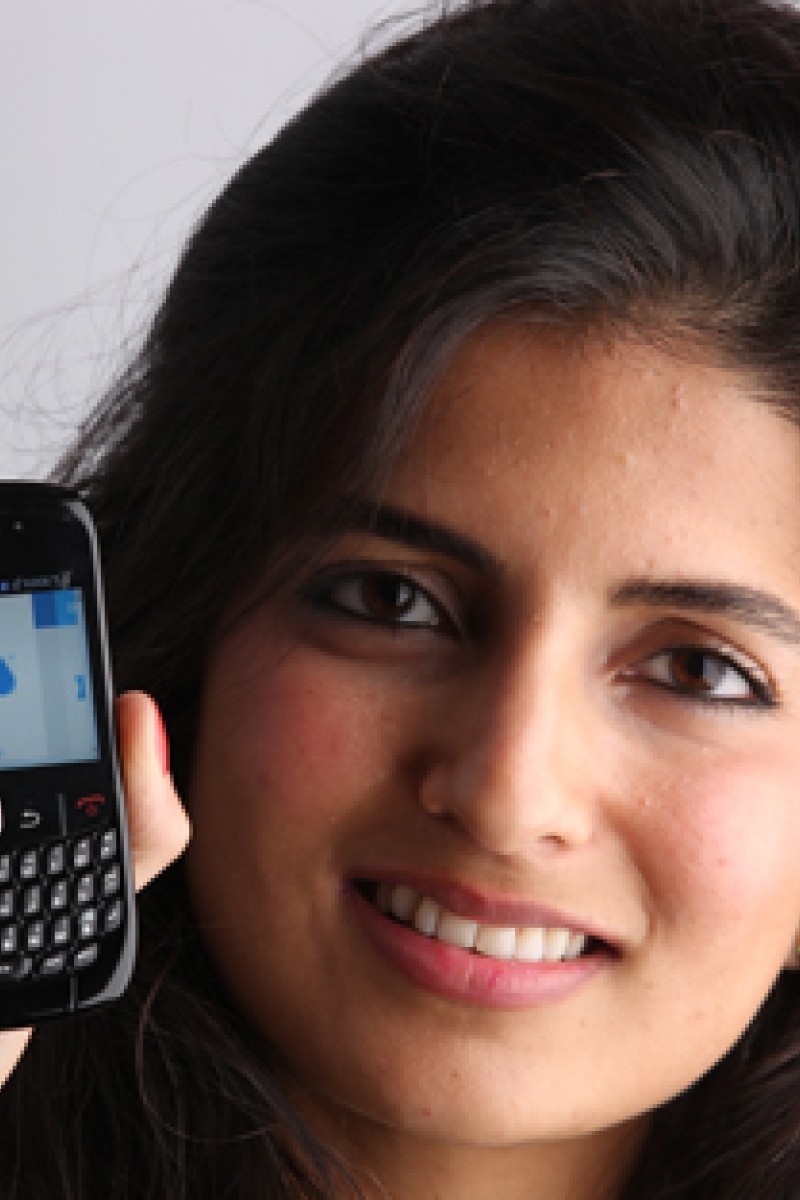 Akanksha Hazari plans to launch her business idea in India this summer.
Akanksha Hazari plans to launch her business idea in India this summer."For the four billion people at the bottom of the 'pyramid', the mobile phone is their lifeline," says Akanksha Hazari, a West Island School graduate. The 29-year-old founded m.Paani, a social enterprise that uses cell phones to help the poor.
Mobile phones can provide the needy with key services, such as safe water, sanitation, education, health care and energy, she says.
"Worldwide, 2.5 billion people don't have access to sanitation. One billion don't have access to safe water. Yet 5.1 billion - or 68 per cent of people in developing countries - have mobile phones," she says.
Hazari has seen how important cell phones are to villages where she has lived and worked.
"In the villages, farmers use their mobile phones to check pricing and whether a market is open before they travel a long way to sell their products. They use phones to call buyers and customers to keep their businesses going," says Hazari, who went to Princeton University in the US and has an MBA from Cambridge University.
"Others need phones to get medical advice when a family member is sick."
She was born in Pune, India, and moved to Hong Kong with her parents when she was 10. Her dream job revolves around the growth of mobile phones in developing countries. She launched m.Paani (www.mpaani.com) in August.
"M represents 'mobile' and paani means water in Hindi," she says.
The project aims to form a partnership with local telecommunications companies and works like a loyalty programme. Mobile users who sign up earn points each time they add value to their Sim cards. The points are cashed in with the telecom provider, and the money funds a necessity in that user's community, such as safe-water and sanitation services, education or energy.
The goal, Hazari says, is to empower the poor: they get to choose how to invest the money to improve their lives. Her idea won the Hult Global Case Challenge last year, which rewards innovative business ideas. M.Paani won US$1million and was honoured by former US president Bill Clinton.
Access to safe-drinking water is a cause close to Hazari's heart. "In the slums in Mumbai, there are days when no clean water is available. There are no infrastructures or water pipes, and people have to wait for trucks to deliver clean water to them every day."
The problem is worse in rural areas, she says.
"It is usually the women who go out to fetch water. They often have to walk very far, and during the journey, anything could happen to them - they could be attacked."
Hazari has approached some major telecom companies in India for partnerships. To her surprise, many showed interest. Fierce competition in the industry means companies are trying to grab hold of this growing group of rural mobile-phone users.
The project is still in its early stage, but already, Hazari has seen a positive impact.
"I believe it's a good idea to involve companies early on, before they enjoy making a profit," she says. "They can develop a mindset to do good for the society - and to know that earning money and doing good don't contradict each other."
Hazari has an exciting summer ahead. She will launch a pilot programme with the help of local NGOs in India. The scheme could last up to two years. If it works, she may expand m.Paani to other places, such as the mainland, Brazil and Nigeria.
"We are lucky to grow up here in Hong Kong where everything works. It's easy for us to forget that less than a third of the people in the outside world live like us," she says.
Hazari says her project so far has been worthwhile. "Not everyone has to start a company, but we're all born with some skills. We should use what we have to help others."
